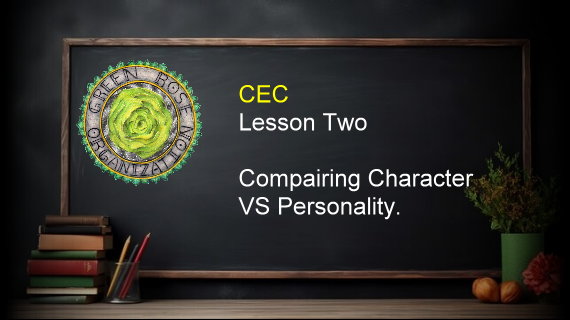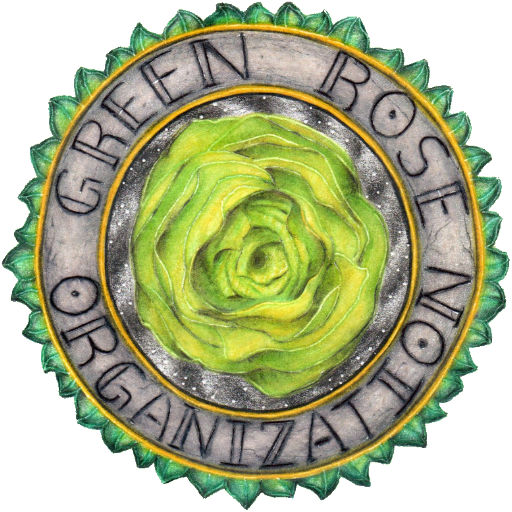
CHARACTER VS PERSONALITY
COMPAIRING THE DIFFERENCES BETWEEN CHARACTER & PERSONALITY
Character and personality are distinct, yet interconnected aspects of who we are. Here’s how they differ: Character refers to the moral and ethical qualities that define a person’s core values and behaviors. It’s about what we do when no one is watching—our integrity, honesty, and sense of right and wrong. Character evolves over time and is shaped by experiences, upbringing, and conscious choices. Character is relatively stable and remains consistent across different situations. For example, someone with strong character traits like compassion or fairness/justice will usually display them, even under pressure. Personality, on the other hand, encompasses the outward traits, attitudes, and behaviors that we display in social situations. It’s more about our style of interacting with the world—whether we’re outgoing or reserved, cheerful or contemplative. Personality is often seen as more fluid and flexible since it has a lot to do with how we adapt in different situations. It can show variability depending on the situation. For instance, a person might be outgoing in one setting but reserved in another. Think of character as the foundation of our inner values, while personality is the expressive layer that others perceive. Both work together to form a complete picture of who we are.
ELEMENTS OF A GOOD CHARACTER FOUNDATION
Building a strong character foundation is crucial for personal growth and for earning the trust and respect of others. Here are some key elements that form the bedrock of good character: Integrity, or acting consistently with moral and ethical principles. Essentially being honest and truthful, even when it’s difficult or inconvenient. Responsibility, or owning up to one’s actions and decisions, whether positive or negative. Essentially following through on commitments and honoring obligations. Empathy, or understanding and considering the feelings and perspectives of others. Essentially demonstrating kindness, compassion, and a willingness to help. Respect, or treating others with dignity and valuing their opinions, even when there are differences. Essentially practicing tolerance and being considerate in all interactions. Courage, or standing up for what’s right, even in the face of opposition or challenges. Essentially being willing to take risks and learn from failure. Humility, or recognizing one’s limitations and being open to feedback or self-improvement. Essentially avoiding arrogance or excessive pride. Perseverance, or staying committed to goals despite obstacles or setbacks. Essentially demonstrating resilience and determination in the face of challenges. Fairness, or treating everyone equally and justly, without favoritism or prejudice. Essentially being impartial and open-minded when making decisions. Gratitude, or acknowledging and appreciating the positive aspects of life and the efforts of others. Essentially fostering a positive outlook and expressing thanks genuinely. Self-Discipline, or exercising control over one’s impulses, emotions, and desires. Essentially making choices that align with long-term values rather than immediate gratification. Together, these elements create a framework for making ethical decisions, fostering meaningful relationships, and building a life of purpose and fulfillment.
ELEMENTS OF A WHOLESOME PERSONALITY
A good personality is often seen as a blend of traits and behaviors that make someone approachable, engaging, and effective in building positive relationships. Here are key elements that contribute to a well-rounded, appealing personality: Positivity, or having an optimistic outlook and spreading good energy. Essentially being able to uplift others and maintain composure in tough situations. Confidence, or believing in yourself without crossing into arrogance. Essentially exuding self-assurance that makes others feel secure around you. Adaptability, or being flexible and open to change or new experiences. Essentially thriving in diverse situations and handling challenges gracefully. Humor, or displaying a good sense of humor that brings joy to others. Essentially knowing how to laugh at yourself and not take everything too seriously. Communication Skills, or having the ability to express ideas clearly and listen actively. Essentially being approachable, open, and respectful in all forms of interaction. Curiosity, or showing a genuine interest in learning and exploring new things. Essentially being enthusiastic and open-minded about different perspectives. Charisma, or possessing a magnetic presence that draws people toward you. Essentially balancing charm with sincerity to create meaningful connections. These elements can vary depending on cultural and personal preferences, but together, they form a personality that is appealing, well-balanced, and impactful.

